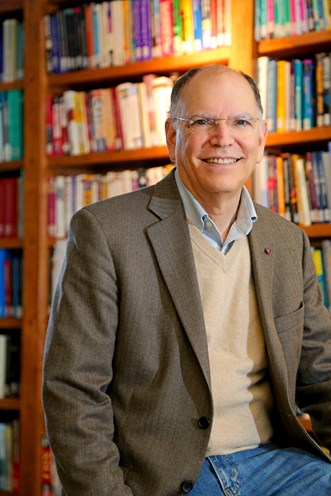 CONWAY, Ark. (August 17, 2016) – Hendrix College will host "Archaeology Matters: The Relevance of Archaeology in the Modern World," a lecture by Phi Beta Kappa Visiting Scholar Dr. Jeremy Sabloff on Thursday, Sept. 29, at 5 p.m., in Mills B.
CONWAY, Ark. (August 17, 2016) – Hendrix College will host "Archaeology Matters: The Relevance of Archaeology in the Modern World," a lecture by Phi Beta Kappa Visiting Scholar Dr. Jeremy Sabloff on Thursday, Sept. 29, at 5 p.m., in Mills B.
The lecture, sponsored by the Hendrix College Phi Beta Kappa chapter, is free and open to the public. For more information, contact Jamie Groat at 501-450-1373 or
groatj@hendrix.edu.
About
the lecture
Archaeology is not just about the past but also is quite relevant to the world today. It can fill key gaps in recent history that have been ignored by written records, it can help preserve and conserve the world’s historical heritage, it can strengthen tourism and economic opportunities, it
can help build ethnic pride (although this has its dangers, too!), and it can serve modern communities in a variety of ways such as providing expert testimony in land disputes. It also can offer new understandings of waste disposal, homelessness, border crossings, and the use of forensics. Moreover, archaeology’s long time perspective
can provide fresh insights into issues such as sustainability, resilience, and adaptation to changing ecological and cultural conditions. While archaeology clearly cannot solve the huge problems facing peoples around the globe, this lecture shows how it can shed some useful light on these problems.
About
the speaker
Jeremy Sabloff is Christopher H. Browne Distinguished Professor of Anthropology, Emeritus, and former director of the University of Pennsylvania Museum (1994-2004). An archaeologist, he recently retired as president of the Santa Fe Institute, where he continues as a member of the
external faculty. He has written or edited 21 books and monographs on ancient Maya civilization, the rise of complex societies and cities, the history of archaeology, and the relevance of archaeology in the modern world. He is a member of the National Academy of Sciences and the American Philosophical
Society, as well as a fellow of the American Academy of Arts and Sciences and the Society of Antiquaries (London). The Society for American Archaeology honored him with its Lifetime Achievement Award, and he is a recipient of the University of Pennsylvania Museum’s Lucy Wharton Drexel Medal.
About
the Phi Beta Kappa Visiting Scholars Program
Since 1956, the Phi Beta Kappa Society’s Visiting Scholar Program has been offering undergraduates the opportunity to spend time with some of America’s most distinguished scholars. The purpose of the program is to contribute to the intellectual life of the institution by making possible an
exchange of ideas between the Visiting Scholars and the resident faculty and students. The 15 men and women participating during 2016-2017 will visit approximately 100 colleges and universities with chapters of Phi Beta Kappa, spending two days on each campus and taking full part in the academic life of
the institution. They will meet informally with students and faculty members, participate in classroom discussions and seminars, and give a public lecture open to the entire academic community. Now entering its 61st year, the Visiting Scholar Program has sent 649 Scholars on 5,285 two-day visits.
About
Phi Beta Kappa
Founded in 1776, the Phi Beta Kappa Society is the nation's oldest and most widely known academic honor society. It has chapters at 286 colleges and universities in the United States and more than half a million members throughout the country. Its mission is to champion education in the
liberal arts and sciences, to recognize academic excellence, and to foster freedom of thought and expression.
About
Hendrix College
Hendrix College is a private liberal arts college in Conway, Arkansas. Founded in 1876 and affiliated with the United Methodist Church since 1884, Hendrix is featured in Colleges
That Change Lives: 40 Schools That Will Change the Way You Think about Colleges and is nationally recognized in numerous college guides, lists, and rankings for academic quality, community, innovation, and value. For more information, visit
www.hendrix.edu.